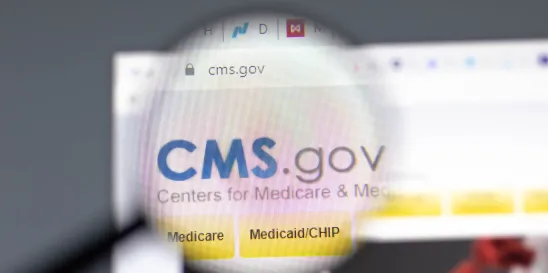On January 18th, the Centers for Medicare & Medicaid Services (CMS) announced a new demonstration model called the Innovation in Behavioral Health (IBH) Model, which is designed to improve outcomes for adults with mental health and substance use disorders (MH/SUD) by enhancing behavioral health provider capacity to integrate physical health care into their practice settings and services. The new demonstration model will be run out of the Centers for Medicare and Medicaid Innovation (CMMI) under the funding authority of Section 3021 of the Affordable Care Act and demonstration authority of Section 1115A of the Social Security Act.
Like demonstration models such as the Financial Alignment Initiative and the States Advancing All-Payer Health Equity Approaches and Development (AHEAD) Models, and the Maryland All-Payer Model, the IBH will be a model involving collaboration between CMS and the Medicaid agency from a particular state. For this reason, the first phase of the model process is the selection of states to participate. Under the IBH, in the Spring of this year, CMMI will first issue a Notice of Funding Opportunity (NOFO) with eligibility restricted solely to state Medicaid agencies. Based on the responses, CMMI will select up to eight state Medicaid agencies to participate and lead their state’s involvement in the IBH Model, which will include further, state-specific provider selection processes.
Under the IBH, CMMI will provide infrastructure funding to providers that participate in Medicare, and the selected states will provide similar funding for Medicaid-only provider practices under aligned program requirements. Although the model will involve both Medicare and Medicaid funding and providers who only participate in one or the other program, it will not be limited to patients who are dually eligible for Medicare and Medicaid. The IBH model is intended to align the implementation of the model in participating states across both programs.
During the pre-implementation period (years 1-3), funding will be used to support health information technology infrastructure capacity, telehealth tools to support the delivery of integrated care, and practice transformation activities. During the implementation period (years 4-8), IBH providers will also receive a risk-adjusted Medicare per-member-per-month Integration Support Payment (ISP) for screening, assessment, and coordination for MH/SUD and physical health conditions and related to health-related social needs, such as housing and food insecurity. IBH providers will also be eligible for performance-based payments to incentivize quality outcomes. Details about the amount and distribution of funding for IBH have not yet been released and will likely either be included in the NOFO or be finalized as a part of the state selection process.
Support for behavioral health providers to expand their use of health IT and telehealth technologies may be greatly beneficial. Behavioral health providers were not eligible to receive funds to support health IT adoption under the Health Information Technology for Economic Clinical Health Act (HITECH Act) and have historically lagged behind physical health providers in the use of electronic health records and related technologies. Improved use of health IT has the potential to greatly improve behavioral health providers’ ability to participate and thrive in public and private managed care programs. Similarly, the capacity of behavioral health and primary care providers to deliver services via telehealth is also becoming increasingly critical due to surging patient demand, expanding regulatory flexibility under federal and state laws, and ongoing and worsening MH/SUD and safety net primary care provider shortages. The use of health IT and telehealth also have the potential to mitigate key barriers to the integration of physical and behavioral health care, through models such as the collaborative care model.
Many other aspects of the IBH Model appear to build on previous strategies and opportunities. Two notable aspects of the IBH Model include the aligning of Medicare and Medicaid funding streams and focus on the integration of physical health care into behavioral health treatment settings. Based on comments from HHS leadership made during the webinar announcing the IBH model, Providers that are currently participating in the Certified Community Behavioral Health Clinic (CCBHC) programs, Medicaid Health Homes programs, and other programs to support the integration of physical and behavioral health should be eligible to further enhance their integration strategies by also participating in the IBH Model.
MH/SUD providers who participate in Medicare and/or Medicaid and are interested in the IBH model should collaborate with national and state associations and other stakeholders to encourage and support the applicable Medicaid Agencies now in preparing to respond to the NOFO. As there are only slots for 8 states, demonstrating provider capacity and interest will be crucial for increasing the chances of selection.
Further details on how states can participate are expected to be released in early 2024 when the NOFO is released.





 />i
/>i
